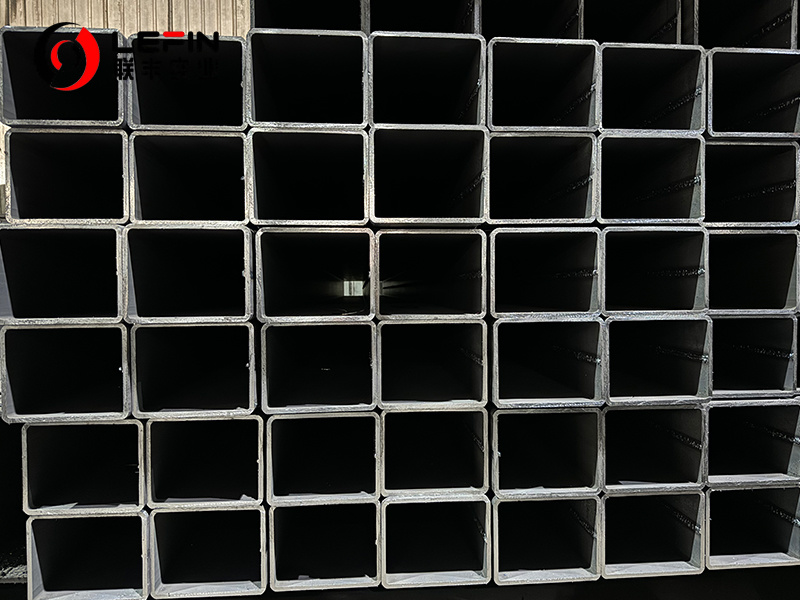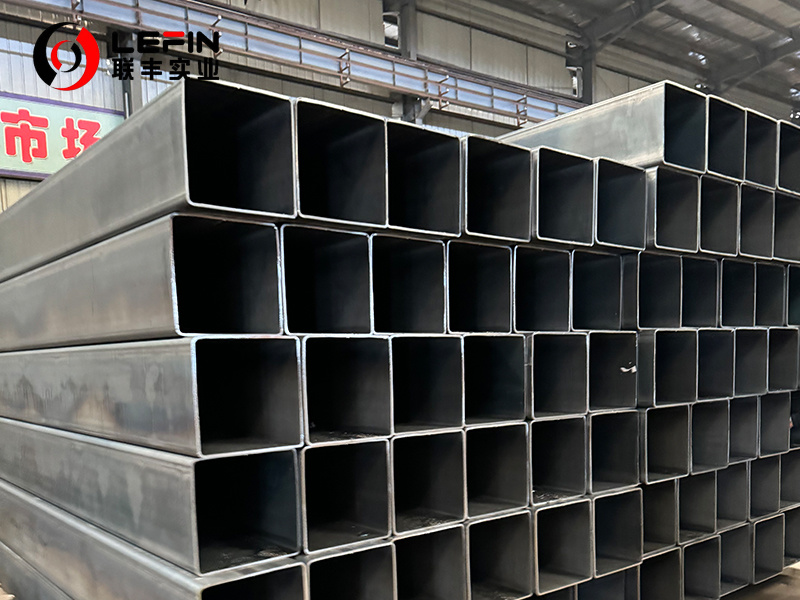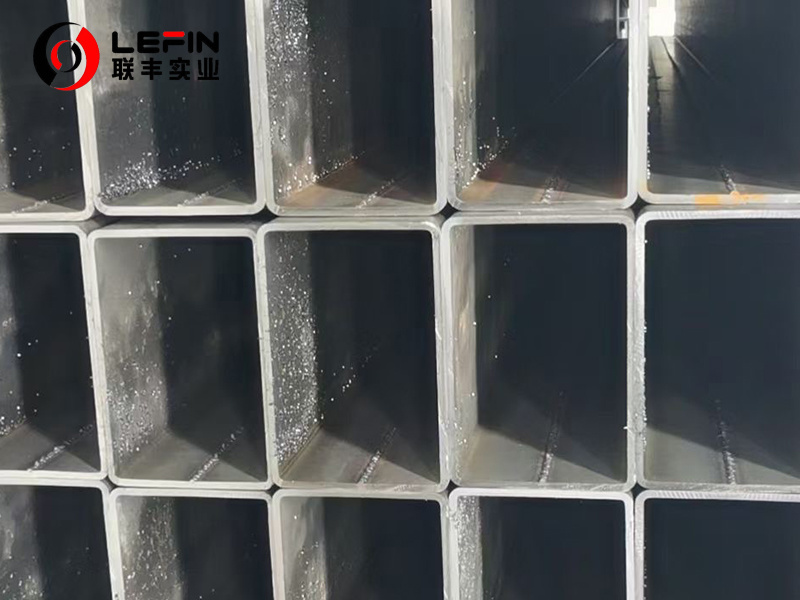



- Details
-
AS/NZS 1163 C250 is a type of cold-formed structural steel hollow section specified in the Australian and New Zealand Standard AS/NZS 1163. Here are the detailed descriptions:
General Description
● Grade Meaning: The grade designation "C250" is based on the steel's nominal minimum yield strength of 250 MPa. The prefix "C" indicates that the section is cold-formed.
● Manufacturing Method: It is typically produced by cold forming and electric resistance welding, without requiring heat treatment.
● AS/NZS 1163 C350 Steel Pipes:
Standard: AS 1163
Grade: C250, C250L0, C350, C350L0, C450, C450L0
Outside diameter: 20-660mm Wall Thickness: 1.3-16mm
Outside diameter: 20*20-1200*1200mm Wall Thickness: 1.3-50mm
Outside diameter: 20*30-1500*1200mm Wall Thickness: 1.2-50mm
The Wall Thickness Tolerance: Control within the standard limits
Length: normally 5.8m, 6m, 12m or as your required
Surface Treatment: Bare Finish, Painting, Oiling, Galvanization, 3PE, FBE coated......
Key Features Of AS/NZS 1163 C250
Material Properties:
● Minimum Yield Strength: 250 MPa
● Tensile Strength: Typically 320 MPa
● Elongation: Minimum elongation requirements apply (varies based on section type and thickness, for CHS, d0/t≤15 Minimum is18% ).
Chemical Composition:
Controlled levels of carbon (C), manganese (Mn), phosphorus (P), sulfur (S), and other elements to ensure weldability and formability.● Carbon (C): ≤ 0.12%
● Silicon (Si):≤ 0.05%
● Manganese (Mn): ≤ 0.50%
● Phosphorus (P), Sulfur (S): Low (≤ 0.030% each)
● Micro-alloying Elements: Maximum 0.03%.
● Carbon Equivalent (CE): Maximum 0.25%.
Manufacturing Process:
● Produced by cold-forming welded steel strips or sheets into hollow sections.
● May be supplied in stress-relieved condition to minimize residual stresses.
Dimensional Tolerances:
Governed by AS/NZS 1163, ensuring consistency in outside dimensions, wall thickness, and straightness.
Comparison With Other Grades:
Similar to EN 10219 (S235JRH) or ASTM A500 Grade C, but with regional (AU/NZ) testing and certification requirements.Standards Referenced:
● AS/NZS 1163: Main standard for cold-formed hollow sections.
● AS 4100: Steel structures design standard (references AS/NZS 1163 for material properties).
Applications And Advantages Of C250 Grade
Applications:
● Structural frameworks (buildings, bridges).
● Mechanical & architectural uses (handrails, supports).
● Transport & machinery (chassis, frames).
● Low to medium-stress load-bearing components.
Advantages:
● Good weldability and formability due to controlled carbon content.
● Suitable for static and dynamic loads in construction.
● Cost-effective for light structural applications.
Summary
In summary, AS/NZS 1163 C250 is a versatile and widely used grade of cold-formed structural steel hollow sections that meets the stringent requirements of the Australian and New Zealand Standard AS/NZS 1163. This grade is characterized by its nominal minimum yield strength of 250 MPa, making it suitable for a variety of structural applications where moderate strength and good formability are required.

AS/NZS 1163 C250 Steel Pipes
Subcategory
Keyword
- Details
-
AS/NZS 1163 C250 is a type of cold-formed structural steel hollow section specified in the Australian and New Zealand Standard AS/NZS 1163. Here are the detailed descriptions:
General Description
● Grade Meaning: The grade designation "C250" is based on the steel's nominal minimum yield strength of 250 MPa. The prefix "C" indicates that the section is cold-formed.
● Manufacturing Method: It is typically produced by cold forming and electric resistance welding, without requiring heat treatment.
● AS/NZS 1163 C350 Steel Pipes:
Standard: AS 1163
Grade: C250, C250L0, C350, C350L0, C450, C450L0
Outside diameter: 20-660mm Wall Thickness: 1.3-16mm
Outside diameter: 20*20-1200*1200mm Wall Thickness: 1.3-50mm
Outside diameter: 20*30-1500*1200mm Wall Thickness: 1.2-50mm
The Wall Thickness Tolerance: Control within the standard limits
Length: normally 5.8m, 6m, 12m or as your required
Surface Treatment: Bare Finish, Painting, Oiling, Galvanization, 3PE, FBE coated......
Key Features Of AS/NZS 1163 C250
Material Properties:
● Minimum Yield Strength: 250 MPa
● Tensile Strength: Typically 320 MPa
● Elongation: Minimum elongation requirements apply (varies based on section type and thickness, for CHS, d0/t≤15 Minimum is18% ).
Chemical Composition:
Controlled levels of carbon (C), manganese (Mn), phosphorus (P), sulfur (S), and other elements to ensure weldability and formability.● Carbon (C): ≤ 0.12%
● Silicon (Si):≤ 0.05%
● Manganese (Mn): ≤ 0.50%
● Phosphorus (P), Sulfur (S): Low (≤ 0.030% each)
● Micro-alloying Elements: Maximum 0.03%.
● Carbon Equivalent (CE): Maximum 0.25%.
Manufacturing Process:
● Produced by cold-forming welded steel strips or sheets into hollow sections.
● May be supplied in stress-relieved condition to minimize residual stresses.
Dimensional Tolerances:
Governed by AS/NZS 1163, ensuring consistency in outside dimensions, wall thickness, and straightness.
Comparison With Other Grades:
Similar to EN 10219 (S235JRH) or ASTM A500 Grade C, but with regional (AU/NZ) testing and certification requirements.Standards Referenced:
● AS/NZS 1163: Main standard for cold-formed hollow sections.
● AS 4100: Steel structures design standard (references AS/NZS 1163 for material properties).
Applications And Advantages Of C250 Grade
Applications:
● Structural frameworks (buildings, bridges).
● Mechanical & architectural uses (handrails, supports).
● Transport & machinery (chassis, frames).
● Low to medium-stress load-bearing components.
Advantages:
● Good weldability and formability due to controlled carbon content.
● Suitable for static and dynamic loads in construction.
● Cost-effective for light structural applications.
Summary
In summary, AS/NZS 1163 C250 is a versatile and widely used grade of cold-formed structural steel hollow sections that meets the stringent requirements of the Australian and New Zealand Standard AS/NZS 1163. This grade is characterized by its nominal minimum yield strength of 250 MPa, making it suitable for a variety of structural applications where moderate strength and good formability are required.

Related products
Product Consulting

Address: Hengtai Road,Daqiuzhuang Town,Jinghai County,Tianjin,China
Mob: +8615122229899(whatspp)
Phone: +86 22 58171905
Fax: +86 22 58171902
E-mail:info@lefinsteel.com
Get company updates

Tianjin Lefin Industrial Co.,Ltd. All rights reserved City sub-station SEO www.300.cn

